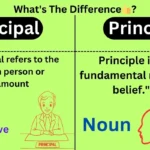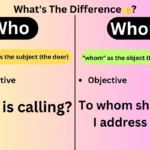Self-awareness and emotional intelligence are crucial in understanding phrases like “I feel myself.”
While it might sound simple, the phrase carries layers of meaning that touch on physical sensations, mindfulness, emotional awareness, and confidence.
Unlock the power of self-awareness with “I feel myself”—a phrase that embodies confidence, emotional clarity, and a deeper connection to your true self.
Let’s delve deep into this phrase and uncover how it contributes to self-understanding and emotional growth.
The Deeper Meaning of “I Feel Myself” in Different Contexts
| Context | Meaning of “I Feel Myself” | Example |
|---|---|---|
| Physical Sensations | Being aware of bodily feelings or states | “I feel myself getting warmer after exercising.” |
| Emotional Awareness | Recognizing and tuning into personal emotions | “I feel myself growing more confident in this new role.” |
| Mindfulness Practice | Staying present and connected to one’s internal experiences | “During meditation, I feel myself relaxing deeply.” |
| Self-Confidence | Expressing a sense of assurance and pride in one’s identity | “I’m feeling myself today; I love how I look and feel.” |
| Relationship Intimacy | Connecting with one’s feelings to enhance closeness with others | “I feel myself opening up more with my partner.” |
| Self-Reflection | Engaging in introspection to understand thoughts and feelings | “I feel myself understanding my reactions better lately.” |
What Does “Feel Yourself” Actually Mean?
Linguistic Origins and Evolution
The phrase “I feel myself” has roots in various languages, where it traditionally describes bodily sensations or physical awareness.
Over time, this phrase evolved to capture an emotional and psychological dimension, making it a modern expression of self-awareness and confidence.
In today’s context, “feeling oneself” often means being in tune with one’s identity, emotions, and physical sensations.
Current Usage and Popularity
Across social media and daily conversation, “I feel myself” conveys a mix of confidence, self-assurance, and presence.
Popularized in music and pop culture, this phrase has become an expression of personal identity and self-recognition.
However, its meaning varies depending on the context, reflecting a wide range of emotional and physical awareness.
Layers of “I Feel Myself”
Self-awareness involves tuning into different aspects of ourselves. The phrase “I feel myself” captures multiple layers of awareness:
Physical Sensation Awareness
At its core, “I feel myself” refers to being physically aware of one’s bodily sensations. This can mean sensing your heartbeat, acknowledging a tense muscle, or feeling warmth.
Physical self-awareness, also known as interoception, involves understanding your body’s signals. Recognizing these signals strengthens body awareness and helps you feel more grounded.
Emotional Self-Awareness
Emotional self-awareness is the next layer. Here, “I feel myself” indicates an emotional state, such as confidence or calmness. Tuning into these emotions allows for emotional regulation—managing and expressing your feelings constructively.
When you say, “I feel myself,” it can express a moment of emotional clarity and empowerment.
Mental Clarity and Presence
Another significant layer is mindfulness. In mindfulness practices, “feeling oneself” refers to achieving mental clarity and staying present.
Recognizing one’s internal state without judgment is vital for self-reflection and personal growth. Regular self-check-ins—moments of introspection—enhance this clarity and deepen self-awareness.
Quote: “To feel oneself fully is to be both mindful of the body and aware of the emotions within.”
“I Feel Myself” and Self-Confidence

The Confidence Connection
A significant aspect of “I feel myself” relates to self-assurance. When someone says, “I’m feeling myself,” it often reflects self-confidence, where they acknowledge their personal expression and self-worth.
This confidence, especially in a world with high social pressures, is crucial for identity exploration and authenticity.
Body Positivity and Self-Acceptance
In recent years, this phrase has also gained traction in the body positivity movement. Feeling comfortable in one’s body fosters self-acceptance and personal pride.
This sentiment can be a powerful affirmation, encouraging individuals to embrace their unique traits and celebrate their individuality.
Why “I Feel Myself” Matters: Self-Awareness in Focus
Self-awareness, which includes introspection and identity formation, is foundational for personal growth.
Understanding one’s internal state—both physically and emotionally—improves mental wellness and resilience.
Psychological Benefits of Self-Awareness
The ability to “feel oneself” aids in:
- Emotional Regulation: Helps in managing feelings and reactions effectively.
- Empathy Building: Enhances the capacity to understand others by first understanding oneself.
- Anxiety and Depression Awareness: Recognizing early signs of mental health challenges.
- Conflict Resolution: Self-awareness improves communication, especially in managing disagreements.
| Benefits | Explanation |
|---|---|
| Emotional Regulation | Control over emotional responses through self-awareness |
| Empathy Building | Understanding others’ emotions by first knowing your own |
| Anxiety Awareness | Recognizing signs of anxiety for early intervention |
| Conflict Resolution | Enhances ability to manage disagreements through self-awareness |
Did You Know? Regular practice of self-awareness and introspection can significantly reduce stress and promote mental clarity.
Practical Usage of “I Feel Myself” in Language
Linguistic Nuances and Grammar
English offers multiple ways to express self-awareness. It’s important to understand the nuances:
- “I feel myself well” – Grammatically correct but less common, usually indicating physical wellness.
- “I feel well” or “I feel good” – More widely used, focusing on overall well-being.
- “I feel comfortable” – Expresses comfort without needing “myself,” showing how grammar shifts meaning subtly.
Tips for Correct Usage
To avoid miscommunication, use the following guidelines:
- Reserve “I feel myself” for describing bodily sensations or a confidence factor.
- For emotional descriptions, use “I feel” followed by an adjective, e.g., “I feel good.”
- Avoid using “I feel myself” for outer experiences; it’s an introspective phrase, meant for personal reflection.
Cultural Perspectives on “I Feel Myself”
Global Variations
Different cultures express self-awareness in unique ways, often influenced by language structure and cultural norms.
While Western cultures lean into self-expression and personal identity, Eastern cultures may focus on mindfulness and collective awareness.
Pop Culture Influence
From music to social media, pop culture has made “I feel myself” a phrase synonymous with confidence and self-assurance.
Celebrity influence has popularized the phrase, adding to its usage in expressing self-love and confidence.
The Role of “I Feel Myself” in Mental Health
Connection to Mental Wellness
Self-awareness contributes directly to mental health. People who regularly practice self-awareness can often identify signs of anxiety or depression earlier, allowing for quicker intervention.
Recognizing one’s internal state provides a solid foundation for building resilience and emotional intelligence.
Therapeutic Applications
In therapy, “feeling oneself” is a method used to encourage clients to connect with their physical sensations.
This connection can be especially beneficial for trauma recovery, where individuals may need to re-establish a sense of presence and self-trust.
“I Feel Myself” in Relationships
Interpersonal Awareness and Intimacy
Being aware of oneself enhances relationships by fostering empathy and intimacy.
When partners are in tune with their own feelings, they communicate better and can resolve conflicts with greater understanding.
Setting Boundaries
Self-awareness helps individuals recognize their own needs, allowing for healthier boundaries and more authentic connections.
Tip: Regular self-check-ins can strengthen your relationship by keeping your emotions balanced and clear.
Common Pitfalls and Misinterpretations
Misusing “I feel myself” can lead to confusion. Here are common mistakes and how to avoid them:
- Mistake #1: Using it for basic emotions, like “I feel myself happy.” Instead, use “I feel happy.”
- Mistake #2: Omitting an action word; it’s best to describe a physical state, like “I feel myself relaxed.”
- Mistake #3: Using it for external events. Stick to internal experiences for this phrase.
Tips for Using “I Feel Myself” Correctly
To use the phrase effectively, consider these tips:
- Practice Self-Reflection: Spend time understanding your feelings to use this phrase authentically.
- Daily Self-Check-Ins: Make time for brief moments of introspection.
- Mindfulness Practice: Use meditation to heighten body awareness and clarity.
- Body-Centered Language: Describe internal sensations rather than vague emotions.
The Golden Rule of “I Feel Myself”: Use it to focus on bodily sensations and moments of self-assurance.
The Future of Self-Awareness and “I Feel Myself”
Digital Age and Self-Awareness
In a world filled with digital distractions, maintaining self-awareness has become essential. Technology like wellness apps and virtual self-reflection tools offer new ways to support self-awareness, making phrases like “I feel myself” more relevant than ever.
Evolving Societal Shifts
As society emphasizes mental health and mindfulness, the phrase will likely continue evolving, adapting to the growing focus on self-care and emotional wellness.
Frequently Asked Questions (FAQs) about “I Feel Myself”
What does “I feel myself” mean?
It means being aware of your physical sensations, emotions, or confidence—connecting deeply with yourself.
Is “I feel myself” grammatically correct?
Yes, it’s correct when used for physical awareness or emotional states, but not for simple feelings.
Can I use “I feel myself” for emotions?
It’s best for self-awareness or confidence. For simple emotions, say “I feel happy” instead.
How is it different from “I feel good”?
“I feel myself” is more about inner connection or self-confidence, while “I feel good” refers to general well-being.
Can it be used in mindfulness or meditation?
Yes, it’s great for focusing on bodily sensations and staying present in the moment.
How does “I feel myself” show self-confidence?
It expresses feeling sure and comfortable in your own skin, often used to show pride in yourself.
Is the phrase used in other languages?
Yes, but its meaning may vary depending on cultural and linguistic differences.
Can “I feel myself” help in relationships?
Yes, it enhances intimacy by promoting better emotional awareness and communication.
What are common mistakes with “I feel myself”?
Avoid using it for simple emotions, forget to include an action word, or apply it to external observations.
Conclusion
“I feel myself” is more than just a phrase; it’s a gateway to self-awareness, emotional intelligence, and confidence.
By understanding and using it mindfully, we can deepen our connection to our internal experiences and build a foundation for personal growth and resilience.
Embrace the phrase as a tool for self-expression and self-discovery—one that can enhance both your inner world and your relationships with others.

As an experienced English teacher, I’m Jessica Thompson, here to make grammar and vocabulary simple and fun. Join me on TalkSpeaker as we explore the language together, one lesson at a time!



